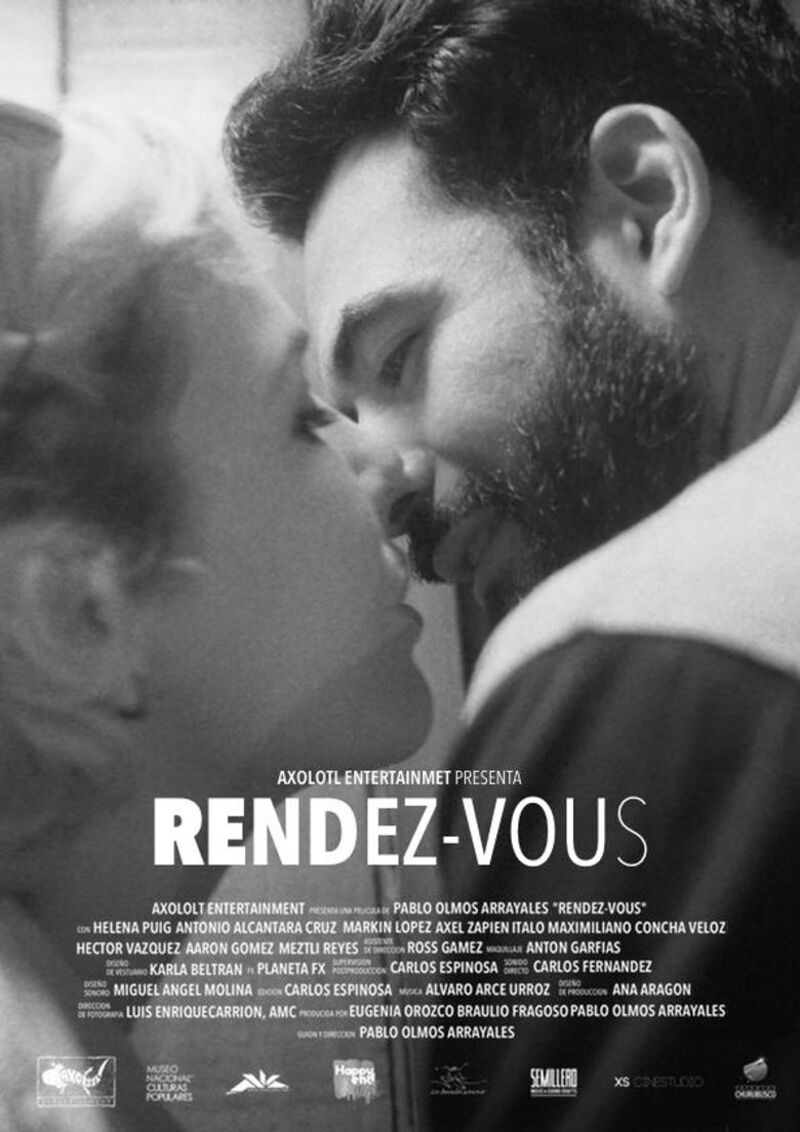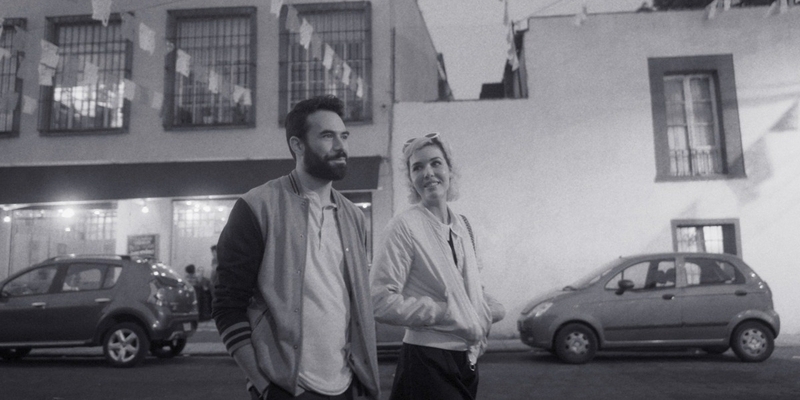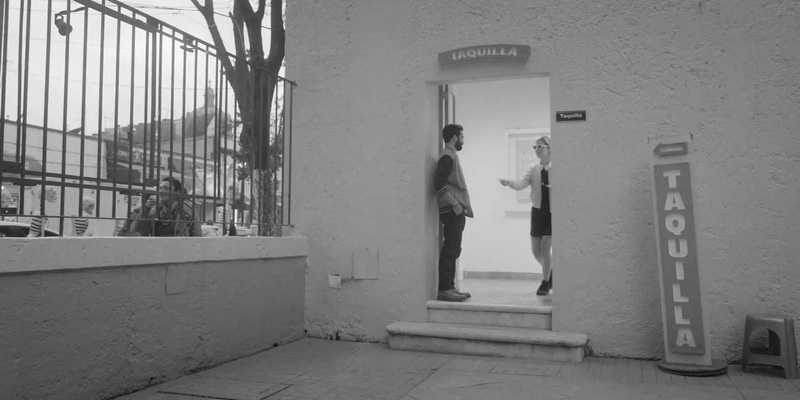
Review by
Hugues Porquier
Directed by: Pablo Olmos Arrayales
Starring: Antonio Alcántara, Helena Puig, Markin López, Axel Zapién, Aaron Gómez,
Italo Maximiliano Concha Veloz, Héctor Vázquez Urquieta

The sequence shot is a practice that is starting to spread more and more
in recent years, as can be seen with
1917
(2019, Sam Mendes),
Birdman
(2014, Alejandro Gonzales Iñarritu) or certain sequences from
Climax
(2018, Gaspar Noé). Pablo Olmos Arrayales is the latest to employ
the sequence shot with his new film Rendez-Vous.
Over almost 85 minutes without interruption, we follow Lili (Helena Puig) and Eduardo (Antonio Alcantara Cruz), who after exchanging
messages through a dating app have decided to see each other in real life.

The meeting, which begins badly with Eduardo's delay, finally takes a
different path. After visiting an art museum, Lili and Eduardo go to
Eduardo's apartment where he offers to prepare a meal to make up for his
delay.
We follow the two protagonists through the streets of Mexico. In this part
of the film, the use of the sequence shot is really interesting. It
creates a strong aspect of realism, which allows us to become fully
immersed in this nascent relationship that makes us discover a city full
of life.
During this walk, the two characters gradually get to know each other and
begin to show a mutual interest despite their differing characters.
On one side is the extroverted Lili, who is not afraid of ridicule and
takes life as it comes, and on the other is the reserved Eduardo who, as
he says himself, is someone who likes to foresee things, to anticipate.

Once at the apartment, the romance flickers and the film gradually changes
its tone. Lili becomes suspicious of Eduardo's behaviour.
The idea of this second half of the film is good, but the execution is
less convincing than in the first half.
Indeed, the use of the sequence shot, which in the opening half allowed
for total immersion, seems here to be an obstacle to the smooth running of
the film. The events struggle to follow one another and the film uses
situations that seem almost forced to advance the plot.

In the same vein, the actors, who were very good in a context of realism
and authenticity, are less convincing in this second half, which gradually
changes register until it plunges into horror.
The film remains very interesting, and the scenario doesn't let us predict
who is actually the real threat between Lili and Eduardo, almost until the
end. Both characters are well developed and the black and white
photography fits perfectly with the atmosphere of the film. The streets of
Mexico seem really attractive with such wonderful photography. The only
negative point of this movie is that some actions and events seem really
forced in order to advance the plot, and this weakness is directly linked
to the use of the sequence shot.

Rendez-Vous is on US VOD now. A
UK/ROI release has yet to be announced.

